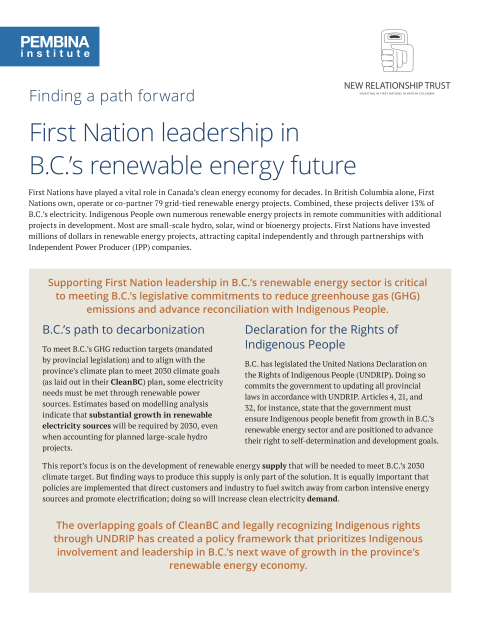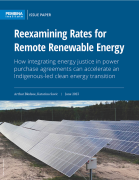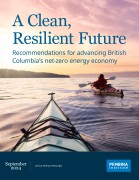First Nations have played a vital role in Canada’s clean energy economy for decades. In British Columbia alone, First Nations own, operate or co-partner 79 grid-tied renewable energy projects. Combined, these projects deliver 13% of B.C.’s electricity. Most are small-scale hydro, solar, wind or bioenergy projects. First Nations have invested millions of dollars in renewable energy projects, attracting capital independently and through partnerships with Independent Power Producer (IPP) companies.
Supporting First Nation leadership in B.C.’s renewable energy sector is critical to meeting B.C.’s legislative commitments to reduce greenhouse gas (GHG) emissions by 40% below 2007 levels in 2030, to support remote Indigenous communities transition off diesel fuel, and to advance reconciliation with Indigenous People.
The government’s legislated mandate to update all provincial laws in accordance with the UN Declaration on the Rights of Indigenous Peoples (UNDRIP) includes ensuring that Indigenous communities benefit from growth in B.C.’s renewable energy sector and are positioned to advance their right to self-determination and development goals.
Given this context and background, the key highlights from the report include:
- The need to increase the supply of renewable energy sources to meet demand for electrification in B.C. is an opportunity to grow beyond the current committed supply of electricity by as much as 19% to 34%.
- Between 10.9 and 19.1 terawatt hours (TWh) of new electricity will be required by 2030 to meet the provinces committed GHG emissions.
- Prioritizing local First Nation renewable energy projects would support the self-sufficiency requirement in B.C.’s Clean Energy Act as well as the call for the creation of new economic avenues for First Nations in B.C.’s Declaration on the Rights of Indigenous Peoples Act (DRIPA).
- Satisfying a portion of the forecasted growth of 10.9 to 19.1 TWh in electricity supply through First Nation projects provides an avenue for self-determination and economic betterment. Right now, the lack of economic opportunities for First Nations in the renewable energy sector is a violation of the spirit of DRIPA.
The overlapping goals of lowering GHG emissions and legally recognizing Indigenous rights through DRIPA have created a policy framework that prioritizes Indigenous involvement and leadership in B.C.’s next wave of growth in the province’s renewable energy economy.
This report was made possible thanks to the financial support and input from New Relationship Trust.








